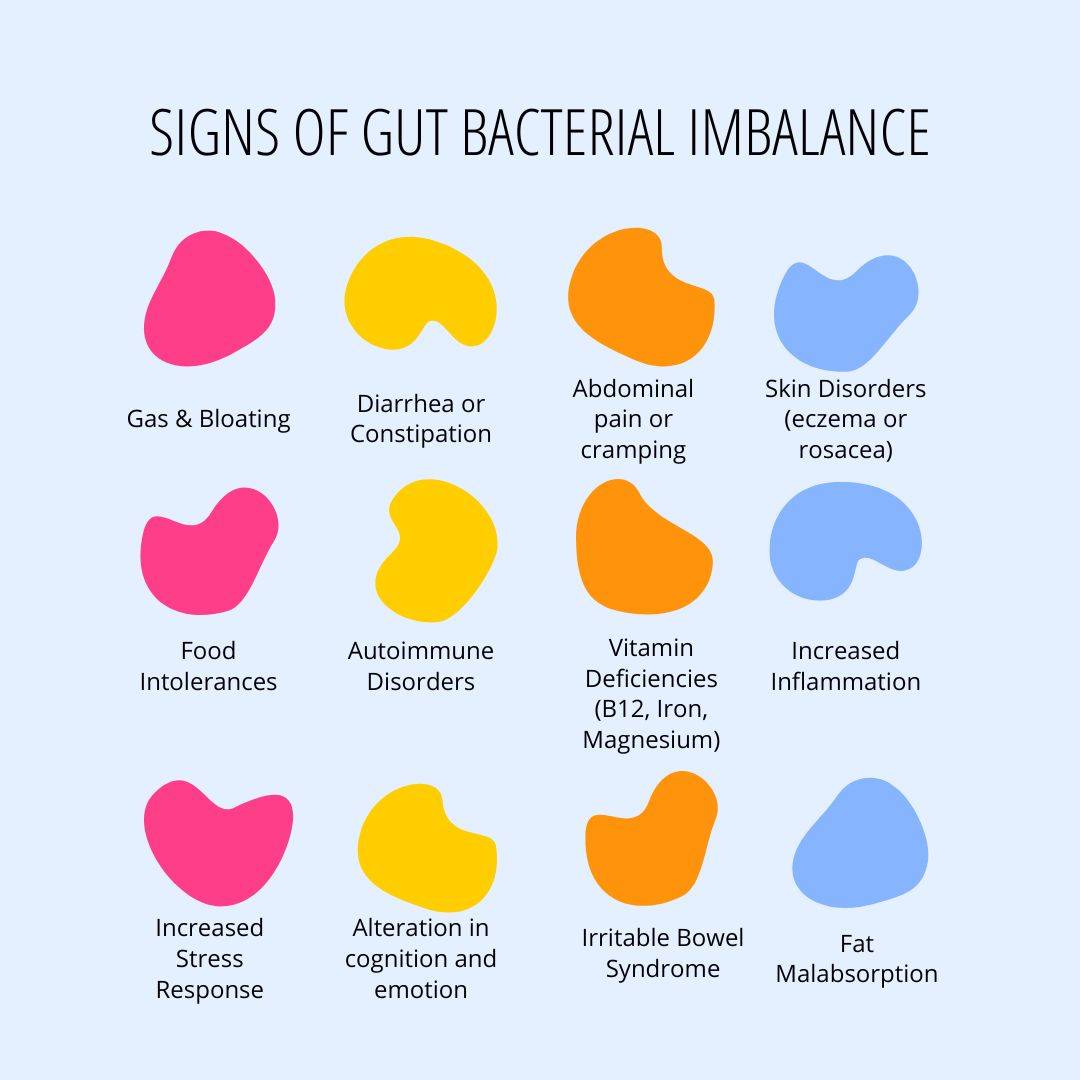Table of Contents
As we come from holiday cheer into the New Year, many are quick to assess the damage of feasting. We might notice some patterns of indigestion from the often heavier seasonal foods and resort to dieting and exercise programs, deeming the food as the only culprit. But what if there’s something deeper lying behind the bloating and gas? Could it be your gut microbiome?
Can You Trust Your Gut?
This isn’t bad advice from one of your high school friends. Our gut, or microbiome, is a community of bacteria within the intestine. It is an internal terrarium of life that needs just the right balance of different kinds of bacteria to be able to support optimal immune, psychological, digestive, and overall health.
There’s something real about your gut feeling. Recent research suggests that changing the balance between disease-causing bacteria and beneficial bacteria in a person’s gut alters its brain chemistry. With a higher ratio of disease-causing bacteria to beneficial bacteria, people are more likely to have symptoms of anxiety. Next time your friend asks about your gut feeling, you may want to check your gut balance to see if you can fully trust it.
So how do you know whether your internal ecosystem is symbiotic or in disarray? These physical signs can help you determine whether there is an imbalance in your gut: gas and bloating, diarrhea or constipation, abdominal pain or cramping, skin disorders, food intolerances, autoimmune disorders, vitamin deficiencies (B12, iron and magnesium are common), increased stress response and inflammation, alteration in cognition and emotions, irritable bowel syndrome (IBS), and fat malabsorption.

Are Your Junctions Tight Enough?
Another important aspect of our gut health is our intestinal lining, which is meant to serve as a boundary to prevent potentially harmful toxins from passing through the digestive tract into the body. Though it’s meant to selectively allow water, electrolytes, and certain nutrients to pass through its tight junctions, certain factors can cause those tight junctions to be damaged and become loosened. This becomes intestinal permeability, which can lead to what some people refer to as leaky gut syndrome. When tight junctions are too loose, they can let harmful substances like antigens, undigested food particles, and toxins “leak” into the rest of the body, often causing an immune response and chronic inflammation. This can lead to digestive and immune system dysfunction. Contributors to intestinal permeability include dietary excesses, nutrient deficiencies, stress, and infections.

Restoring Your Gut Ecology
If you find yourself experiencing a slight breach of trust with your gut and your intestinal barrier, don’t lose hope. To help restore your gut ecology and tighten those junctions, consider using the four R’s as a protocol on your own, or with the guidance of a certified practitioner.
First, we remove pathogens and inflammatory triggers such as stress, food sensitivities (often through an elimination diet), alcohol, gluten, refined starches and sugar.
Next, replace the negative influencers with positive ones, such as anti-inflammatory and nutrient-dense foods, to calm and revitalize the immune system. Common foods include herbs and spices (garlic, turmeric, and rosemary), quality fats (extra virgin olive oil, avocado, ghee, coconut oil), fruits and vegetables, and omega-3 fatty acids (wild-caught fish, nuts and seeds).
With a better foundation for a flourishing community, we repopulate our gut with beneficial bacteria by taking quality probiotic supplements, and consuming fermented foods such as kimchi, kefir, sauerkraut, and kombucha.
Finally, we repair the intestinal lining with supplementation and increasing the following nutrients in our diet: L-glutamine, omega-3 fatty acids, vitamins D3 and K2, and zinc.

In addition to the four R’s, you can also support your gut microbiome using these 5 tips. But of course, is it always a good idea to work with a qualified Nutrition Therapist Master in order to make the dietary changes that are best for your individual health.
Trust Your Gut Again
As with most protocols, this is meant to be a temporary change to enact a more permanent lifestyle shift. Focusing your diet on whole foods will bolster your inner terrarium and overall health. Note which foods you enjoyed and were most agreeable to your system. Consider adding them as staples to your diet. Who doesn’t want to go into a new year with more trust in their gut?
About the author: Lisa (Driscoll) Lopes is a certified Nutrition Therapist Master through NTI’s Nutrition Therapist Master Program. Having studied journalism and vocal performance in undergrad, she enjoys using her voice to share the benefits of living a holistic, integrated lifestyle in writing. You can find more of her writing in the Baltimore Sun, Classical Singer Magazine, Capital News Service, and FOCUS blog.
Images:
- Photo by CDC on Unsplash
- Infographic by Lisa Lopes on Canva
- Infographic by Lisa Lopes on Canva
- Infographic by Lisa Lopes on Canva


More Stories
The One Thing You Should Never, Ever Do if You Have Insulin Resistance and Want to Lose Weight
Tuna Salad Lunch Box – JSHealth
Advanced Wellness Course – Heart Health